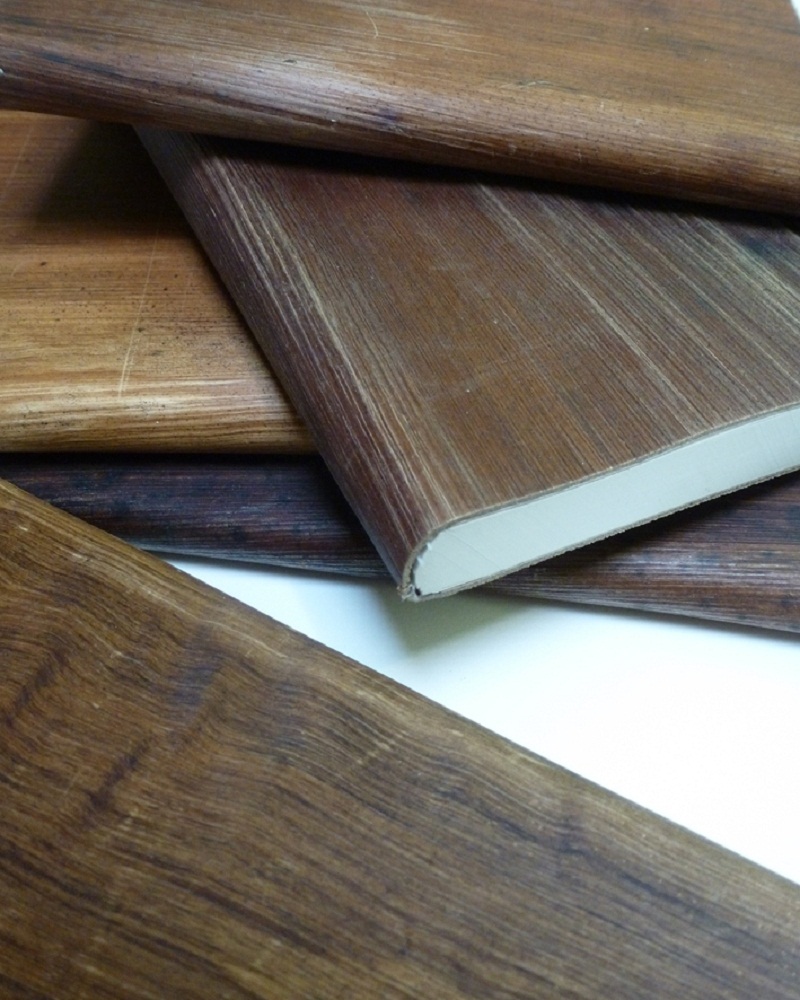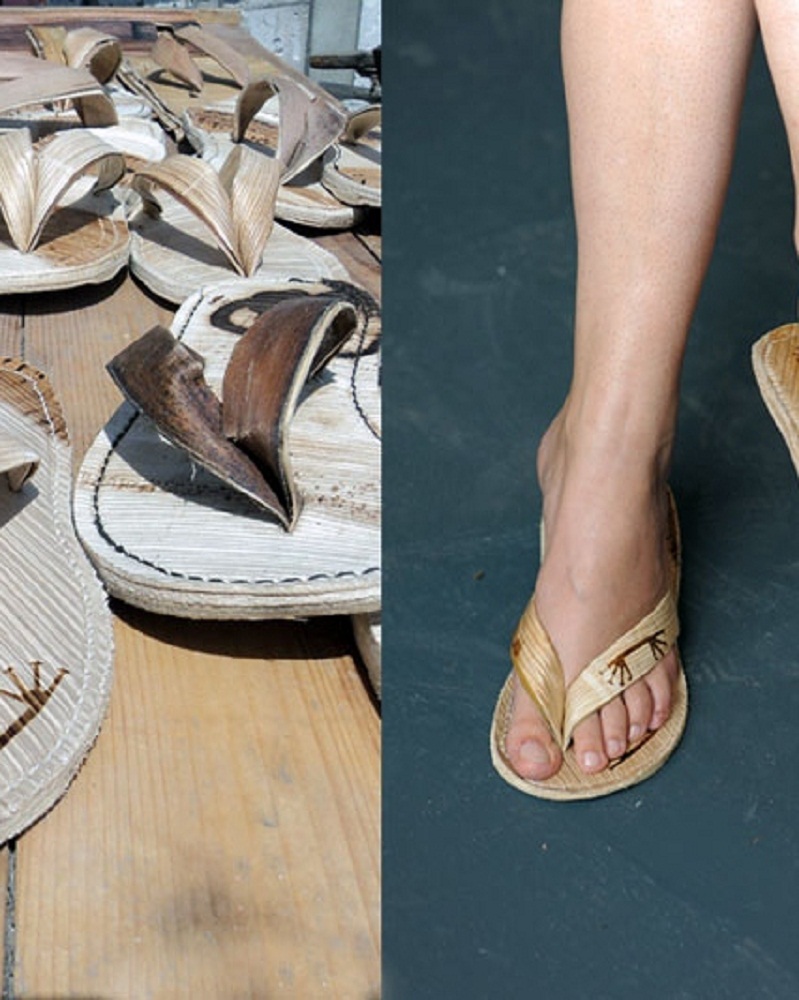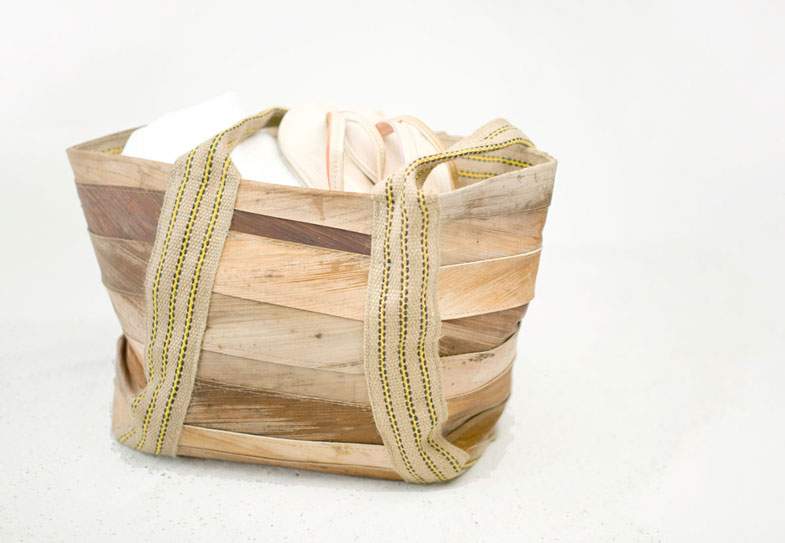A Sustainable Alternative to Leather
The Netherlands-based Studio Tjeerd Veenhoven has recently developed a new vegan textile from the Areca palm.
Vegans, here's a question for you. Obviously, wearing animals is out of the question. But what's your take on a 100% plant-based material that mimics leather? As in, it looks and feels so much like leather that, were you not to know it's an imitation, you'd be organising a rally against it.
One school of thought says Yes! That's exactly what we're after. We don't have a problem with the qualities of leather - appearance, durability, flexibility and so forth - so long as their acquisition doesn't involve the slaughter of any living creatures. The other school of thought says, No. That would be sending the wrong message. Carrying a 'pretend leather' bag around is a bit like wearing faux fur. It might not cause harm directly, but the implication is that animal hide is useful. A truly ethical product should appear as though it came from a plant.

The Netherlands-based Studio Tjeerd Veenhoven has recently developed a new vegan textile from the Areca palm. The plant's leaves are soaked in a specially concocted biological solution, increasing their flexibility, and enabling the creation of a biodegradable material that is striking similar to leather. Studio Tjeerd Veenhoven has used it to manufacture a range of stylish products, including journal covers, sandals, and tote bags.
The innovation comes with the potential for social benefit. The Areca palm is native to South India, where local artisans possess sophisticated knowledge and understanding of manipulating the leaves. Interest in palm leather products may well translate to increased employment opportunities.

Images: Tjeerd Veenhoven
[Via Ecouterre]





